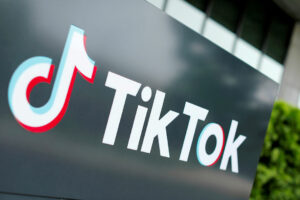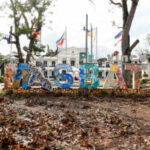
The Department of Tourism (DOT) on Tuesday launched two separate partnerships aimed at supporting the growth of local vendors and promoting local destinations.
Under the agency's partnership with TikTok, tourism micro, small and medium enterprises (MSMEs) will undergo a one-day training or “educational session” focused on using the platform's tools to boost their sales and expand their market.
“I think the beauty of this partnership is that it aligns the platform with (DoT's) objectives. TikTok's platform, which has a global reach, and the objectives of Philippine tourism, which wants to benefit the entire country,” Tourism Secretary Ma. Esperanza Cristina G. Fresco told reporters at the launch.
According to Yves P. Gonzalez, TikTok Philippines' head of public policy, the program will follow a three-module “content camp” that covers topics on content creation, live sales, and advertising.
“Our goal here is to help MSMEs, especially those who are not yet using the platform, and scale up those who are already using it,” Mr Gonzales said. “It's really about empowering them with digital skills so they can level up.”
The tourism chief said the program will be launched in Metro Manila and Cebu in November to help small hotels, restaurants, souvenir shops, travel agencies and tour groups.
He said, “I specifically mentioned Cebu, whose tourism industry in the north has been completely devastated by the recent earthquakes.” “So, they are one of the targets that we are targeting to deliver interventions in the context of this partnership with TikTok.”
“Let's remember that a lot of people are using TikTok. It's a very popular platform. And so, the tourism department wants to help as many tourism stakeholders as possible,” he said.
The first batch of the TikTok training program will open to at least 50 DoT-recognized businesses in a hybrid setup. Other interested applicants may express their intention to join through the regional offices of the agency.
“Our TikTok team and the central office team will put together the names of the people supported by the regional office and we will have a list of names,” said DoT Assistant Secretary Sharleen Zabala-Batin.
The DoT earlier reported that about 1,200 tourism workers in Cebu were displaced by the 6.9-magnitude earthquake that struck the province on Sept. 30.
The Department of Labor and Employment (DOLE) has also extended its support to more than a thousand affected workers by allocating P11 million for the TUPAD (Tulong Panganapbuhay sa Ating Disadvantaged/Displaced Workers) program.
IBP Partnership
In a separate partnership with the Integrated Bar of the Philippines (IBP), the DoT launched a privilege card for lawyers in “good standing” to encourage local travel and tourism spending.
“His jurisdiction is national, not only during his conferences but also in handling cases in courts across the country,” Ms Fresco told reporters. “Then this is a continued source of income for our local tourism destinations.”
The IBP Privilege Card offers discounts and special rates at DOT-accredited enterprises including hotels, resorts, travel agencies and tour operators.
IBP National Director and President Alan G. Panolong said that about 48,000 lawyers in good standing can register for the IBP Privilege Card.
“Lawyers are ineligible to avail of the program if they have not paid their membership dues,” Mr Panolong said. “We give this list to the tourism department to ensure that only qualified lawyers can avail the benefits.”
The tourism chief said one of the factors considered for the partnership is the travel behavior of lawyers. “So when they travel, it's not just them; they bring their families with them.”
By traveling with their families, Ms. Fresco highlighted how lawyers contribute more to domestic tourism expenditure and tourism stakeholders.
“They don't just stay overnight; they stay for several days. This includes not only their hotel stay and airline tickets, but also the support services they provide – the places they dine, their transportation, shopping and souvenirs,” she said.
“The constant stream of lawyers and IBP members traveling across the country stimulates our local economies,” he said.
In addition to the privilege cards, the IBP will also provide free legal counsel, training and representation to eligible DoT-accredited individuals and establishments to protect tourism workers and businesses during disputes and crises.
“We are hoping that the impact of this will be felt across our destinations in terms of our community support,” Ms Fresco said. , Almira Louise S. Martinez










